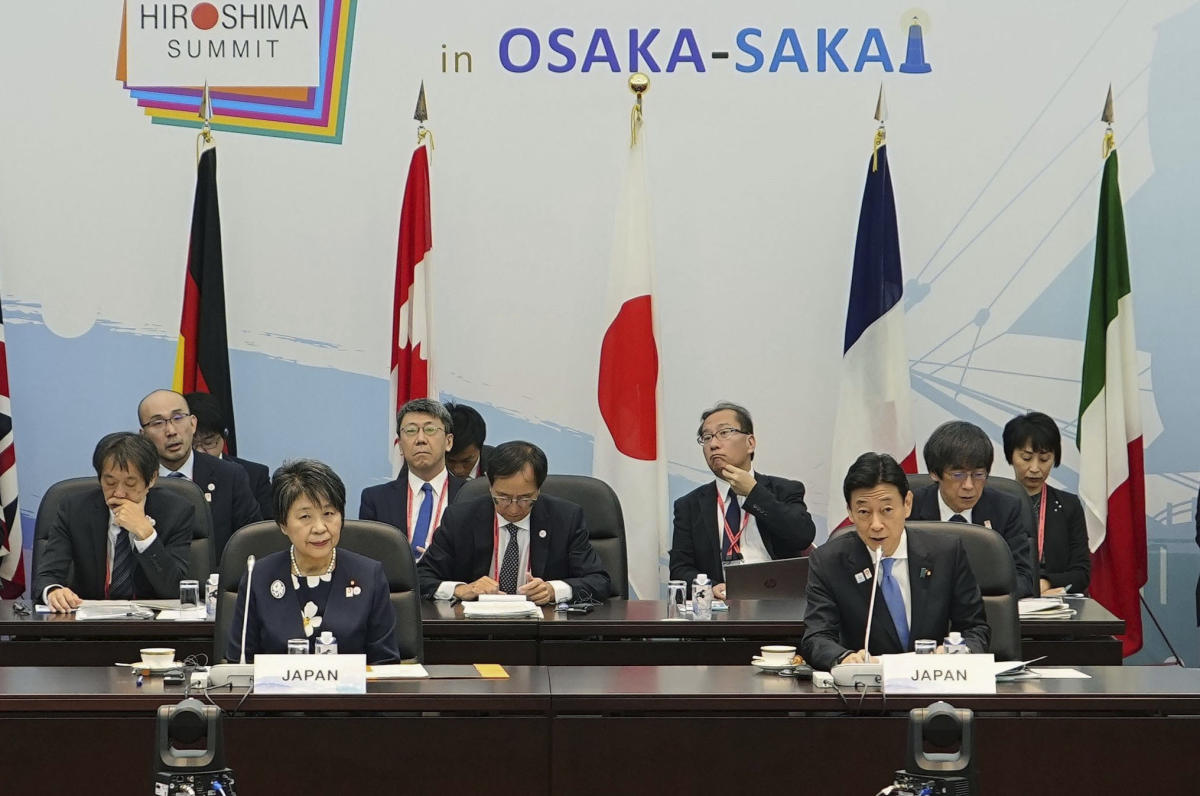TOKYO (AP) — Trade and economy officials from the Group of Seven wealthy democracies have reaffirmed their commitment to ensuring smooth supply chains for essential goods like energy and food, despite global uncertainties. In a joint statement, the nations pledged to maintain “a free and fair trading system based on the rule of law and enhancing economic resilience and economic security.” The two-day event, co-hosted by Foreign Minister Yoko Kamikawa in Osaka, addressed threats such as Russia’s invasion of Ukraine and the Israel-Hamas war, which potentially disrupt stable energy and food supplies.
“As nations that share important values, we have a position of responsibility amidst growing uncertainties,” Kamikawa emphasized, highlighting the importance of democracy, inclusiveness, and human rights.
Developed nations are increasingly concerned about maintaining a stable supply of computer chips and essential minerals like lithium. These minerals are critical to meet the demand for electric vehicles and green energy. The G-7 comprises the U.S., Canada, France, Germany, Italy, Japan, and Britain. Additionally, the European Union, Australia, Chile, India, Indonesia, and Kenya were invited, along with organizations like the World Trade Organization.
In their joint statement, the G-7 nations also condemned “Russia’s brutal, unprovoked, unjustifiable, and illegal war of aggression against Ukraine.” The participants explored how trade policy can contribute to addressing climate change, improving food security, promoting digital trade, and working toward sustainable development.
While China was not explicitly mentioned, political tensions with the country played out in the trade discussions. China’s export restrictions on metals used in computer chips and solar cells were seen as measures to “safeguard national security.” The G-7 summit earlier this year referred to “economic coercion” as an indirect reference to China’s leveraging of economic dependence.
Japan, as the host nation, focused on the issue of China’s ban on Japanese seafood imports following the Fukushima nuclear plant’s treated wastewater release in 2011. Yasutoshi Nishimura, the Japanese minister in charge of trade and the economy, shared that the G-7 nations expressed support for Japan’s position on ensuring the safety of its food based on scientific evidence. Japan will continue to advocate for the lifting of food bans.
Nishimura also highlighted the potential for powerful alliances with guest nations such as Australia and India in strengthening valuable material supply chains. Bilateral agreements were reached on the sidelines, including one between Britain and Japan to collaborate on mineral supply chains essential for clean energy and national defense.
Japan also reached a deal with the EU on digital data exchanges, reaffirming their commitment to develop standards for facilitating digital sector trade. Kamikawa met with U.S. Trade Representative Katherine Tai to reinforce support for “the free and fair economic order” and discuss the importance of greater female participation within the G-7.
___
Yuri Kageyama is on X, formerly Twitter: https://twitter.com/yurikageyama


